Theft Crime Lawyers in San Bernardino
Theft Defense in San Bernardino County, Victorville, Apple Valley, & Redlands
Facing a theft crime can be very stressful. Consequences of a conviction can be far reaching, which may include denial of future employment, denial of housing, or even immigration issues. At Bullard & Powell, APC., we have handled many types of theft offense and can help you with your case.
Shoplifting - Penal Code §459.5
Shoplifting can be charged as either an infraction or a misdemeanor. How the crime is charged will depend on the value of the property taken. If the value of the property is $50 or less, typically the offense is charged as an infraction. If the value of the property is higher than $50, then the offense is charged as a misdemeanor.
In order to show the defendant is guilty of this offense, the state must prove that:
- The defendant entered a commercial establishment; and
- When the defendant entered the commercial establishment, it was open during regular business hours; and
- When he or she entered the commercial establishment, he or she intended to commit theft.
The defendant does not need to have actually committed theft, as long as he or she entered with the intent to do so.
Petty Theft - Penal Code §484 & §488/Grand Theft - Penal Code §487
Petty theft is charged as a misdemeanor, while grand theft is a “wobbler” offense, which can be charged as a misdemeanor or a felony.
In order to show that the defendant is guilty of either of these offenses, the state must prove that:
- The defendant took possession of property owned by someone else; and
- The defendant took the property without the owner’s or the owner’s agent’s consent; and
- When the defendant took the property, he or she intended to deprive the owner of it permanently or to remove it from the owner’s or owner’s agent’s* possession for so extended a period of time that the owner would be deprived of a major portion of the value or enjoyment of the property; and
- The defendant moved the property even a small distance and kept it for any period of time, however brief.
*An agent is someone to whom the owner has given complete or partial authority and control over the owner’s property.
What is the Difference Between Petty Theft & Grand Theft?
Petty theft is defined in the Penal Code under two separate code sections. First, Penal Code §484 defines the offense of petty theft by explaining theft generally. Penal Code §488 sets forth the dollar amount consideration for a violation of petty theft — that the theft is defined as stealing someone else’s money, property, or services that is valued at $950 or less. Penal Code §487 defines grand theft as the stealing of someone else’s money, property or services, that is valued at $950 or more.
It should be noted that the dollar amount of the property taken is assessed at the fair market value of the property at the time of the taking.
Embezzlement - Penal Code §503
Embezzlement is a wobbler and can be charged as a felony or a misdemeanor.
In order to show that the defendant is guilty of this offense, the state must show:
- An owner or the owner’s agent entrusted his or her property to the defendant; and
- The owner or the owner’s agent did so because he or she trusted the defendant; and
- The defendant fraudulently converted or used that property for his or her own benefit; and
- When the defendant converted or used the property, he or she intended to deprive the owner of it.
Burglary: First & Second Degree
Burglary is divided into two degrees:
- First-degree burglary
- Second-degree burglary.
The main difference is whether the building that was entered was an inhabited dwelling or a commercial space. Depending on the nature of the offense, burglary can be charged as a misdemeanor or felony. Further, also depending on the nature of the offense, the matter can be charged as a strike.
First-degree burglary is the burglary of an inhabited dwelling, whether or not someone is inside at the time of the alleged entry. All other burglaries are second degree.
In order to be found guilty of burglary, the state must show that:
- The defendant entered a building or structure; and
- When he or she entered the building or structure, he or she intended to commit theft or some other felony.
If the matter involves a commercial burglary, the state must also show the following:
- The structure that the defendant entered was a noncommercial establishment; or
- The structure was a commercial establishment that the defendant entered during non-business hours.
An example of a first-degree burglary is when someone enters a home with the intent to steal medication. If the home is occupied at the time of entry, the matter is typically charged as a strike. An example of a second-degree burglary is when someone enters a drug store with the intent to steal make-up. This is a commercial burglary (burglary in the second degree) and can be charged as either a misdemeanor or a felony.
Possession of Burglary Tools - Penal Code §466
Possession of Burglary Tools is a straight misdemeanor, meaning it cannot be reduced to an infraction or increased to a felony.
In order to be convicted of this offense, the state must prove the following:
Every person having in his or her possession a pick lock, crow, key bit, crowbar, screwdriver, vise grip pliers, water-pump pliers, slide hammer, slim jim, tension bar, lock pick gun, tubular lock pick, bump key, floor-safe door puller, master key, ceramic or porcelain spark plug chips or pieces, or other instrument or tool with intent feloniously to break or enter into any building, railroad car, aircraft, or vessel, trailer coach, or vehicle as defined in the Vehicle Code, or who shall knowingly make or alter, or shall attempt to make or alter, any key or other instrument named above so that the same will fit or open the lock of a building, railroad car, aircraft, vessel, trailer coach, or vehicle as defined in the Vehicle Code, without being requested to do so by some person having the right to open the same, or who shall make, alter, or repair any instrument or thing, knowing or having reason to believe that it is intended to be used in committing a misdemeanor or felony, is guilty of a misdemeanor. Any of the structures mentioned in Section 459 shall be deemed to be a building within the meaning of this section.
Robbery - Penal Code §211
Robbery is a straight felony, meaning that it can only be charged as a felony. It is a strikeable offense.
In order to prove that a defendant is guilty of this offense, the state must show that:
- The defendant took property that was not his or her own; and
- The property was in the possession of another person; and
- The property was taken from the other person or his or her immediate presence; and
- The property was taken against that person’s will; and
- The defendant used force or fear to take the property or to prevent the person from resisting; and
- When the defendant used force or fear, he or she intended to deprive the owner of the property permanently or to remove the property from the owner’s possession for so extended a period of time that the owner would be deprived of a major portion of the value or enjoyment of the property.
Grand Theft Auto or the Unlawful Taking or Driving of Vehicle - Vehicle Code§10851
Violation of Vehicle Code §10851 is a wobbler and can be charged as a misdemeanor or a felony.
In order show that the defendant is guilty of this offense, the state must prove that:
- The defendant took someone else’s vehicle without the owner’s consent; and
- When the defendant took the vehicle, he or she intended to deprive the owner of the possession or ownership of the vehicle for any period of time; and
- The vehicle was worth more than $950.
OR
- The defendant drove someone else’s vehicle without the owner’s consent; and
- When the defendant drove the vehicle, he or she intended to deprive the owner of possession or ownership of the vehicle for any period of time.
Carjacking - Vehicle Code §215
A violation of Vehicle Code §215 is a straight felony, meaning that it cannot be reduced to a less serious offense, such as a misdemeanor or infraction.
In order to prove that the defendant is guilty of this offense, the state must prove that:
- The defendant took a motor vehicle; and
- The vehicle was taken from the immediate presence of a person who possessed the vehicle or was its passenger; and
- The vehicle was taken against that person’s will; and
- The defendant used force or fear to take the vehicle or to prevent that person from resisting; and
- When the defendant used force or fear to take the vehicle, her or she intended to deprive the other person of possession of the vehicle either temporarily or permanently. The defendant’s intent to take the vehicle must have been formed before or during the time he or she intended to deprive the other person of possession of the vehicle either temporarily or permanently.
The defendant’s intent to take the vehicle must have been formed before or during the time he or she used force or fear. If the defendant did not form this required intent until after using the force of fear, then he or she did not commit carjacking.
Meet Our Team
Experienced & Knowledgeable Attorneys
Why Choose
Bullard & Powell, APC.?

-
We Value Quality Service Over Quantity of Cases
-
Sympathetic & Understanding Service
-
Well-Known by Local District Attorneys & Judges
-
Over 30 Years of Combined Experience

Client Testimonials
Feedback From Real People We've Helped-
"I made the correct choice by calling Bullard & Powell."Gary
-
"I could not be any more happy with a law firm then Bullard & Powell. I called and they immediately had a solution to my problem. They took care of things immediately and with the up most knowledge ..."Brian
-
"Bullard & Powell took care of my 2 felony charges that required jail time. Attorney Jeff Bullard got one charge dismissed & probation on the other with no jail time whatsoever. They were quick to ..."Pius
-
"I would like to write to say how much of a pleasure it has been working with Sarah Powell and her colleagues. Sarah meticulously worked with me and the courts to help me achieve the best possible ..."John
-
"Sarah Powell is an amazing lawyer. My husband was in a pretty bad situation but she worked her magic on his DUI case and he was able to avoid jail time and a felony charge that would have ruined his ..."Ariel
-
"When I chose Bullard & Powell I made sure I based my decision on how important my future was to me, after speaking with Mr. Bullard I knew it was just as important to him. From the beginning, he was ..."Danny



